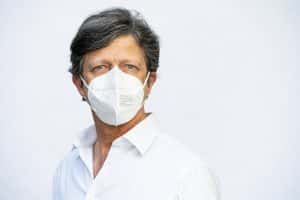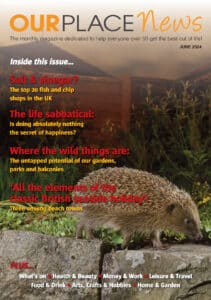When cases of coronavirus rapidly escalated earlier this year, the UK government instructed those deemed most at risk of needing hospital treatment if diagnosed with Covid-19 to stay at home.

These ‘shielding’ measures were designed to protect 2.2 million people and to ease potential stress on front-line NHS services.
While everyone was advised to follow general social distancing guidelines to help stop the spread of the virus, two higher-risk groups were told to take even more precautions to protect themselves; the “clinically vulnerable” which includes all over 70’s and the “clinically extremely vulnerable”.
The latter group – the most at risk – are the ones who were told to shield. They include solid organ transplant recipients, some cancer patients undergoing chemotherapy and radiotherapy, people on immunosuppression drugs, pregnant women with significant heart disease and those with severe respiratory conditions such as cystic fibrosis, asthma and COPD. The list also included over vulnerable 90,000 children.
In essence, the advice to those told to shield was to stay at home. Most were advised by their GP’s against going to work, shops or
visiting friends and that face-to-face contact with anyone aside from carers and care workers should be avoided.
In response, an army of 500,000 volunteers helped to deliver free food and medicine straight to the doors of the extremely vulnerable and support workers have been making regular check-ins over the phone.
An update in the guidance
Against the backdrop of falling rates of coronavirus infections, the government has updated its guidance for people who are
shielding. On 22 June the government set out a series of steps for further relaxing shielding guidance which will come into effect
on 6 July and 1 August.
Even so, the importance of following social distancing guidelines remains paramount. People who are shielding should remain at a 2-metre distance from others, shouldn’t leave the house more than once a day and should continue to avoid crowded places, including busy shops and workplaces.
It is suggested that any time outside should only be spent with members of their household or, in the case of the anyone living alone, with one person from another household. In those instances, contact should ideally be with the same person each time.
Protecting yourself from Covid-19
While the rules may have been relaxed, it’s important for those shielding to continue to minimise the time spent in communal areas, even with those in the same household. The aim at all times should be to minimise potential exposure to the virus.
If possible, this means using a separate bathroom and towels, wiping surfaces clean regularly and drawing up a rota that ensures clinically extremely vulnerable family members use washing facilities before others. Meals should continue to be taken alone and you should aim to sleep in a separate room from anyone else.
Face coverings
The UK government is now proactively advising people to wear face coverings whenever social distancing is difficult.
Those shielding should first and foremost look to avoid such places and must recognise that covering the mouth and nose is not a substitute for physical distancing.
The ultimate aim of promoting face coverings is to prevent people who have the virus but are not experiencing symptoms from passing it on to others.
If you’re considering buying a mask, it’s worth understanding the difference between the various types available. Surgical masks (also known as simple face masks) do not have an airtight seal and subsequently are not designed to protect the wearer from inhaling airborne bacteria or viruses whose particles are smaller.
Respirator masks, which include Euro-certified FFP 1, FFP2, FFP3 and US-certified N95 and N99 varieties are designed to filter particles to various degrees. FFP2 masks are most commonly used by healthcare professionals in the UK.
Hand-washing and respiratory hygiene
Day-to-day personal hygiene remains hugely important. Everybody should wash their hands frequently with soap and water or with a sanitiser gel. It is also important to refrain from any unnecessary touching of your face, particularly eyes nose and mouth.
Coughs and sneezes should be caught in a tissue with the tissue then disposed of immediately. If tissues aren’t available, people should aim to sneeze into a bent elbow.
Staying physically and mentally active
Despite a raft of supportive measures, many of those following the shielding guidelines have found the ongoing situation stressful. It is advised that if you are feeling anxious about a change in routine or regular care arrangements that you speak to friends and family either online or by phone. There are also lots of advocacy groups ready to listen.
Eating healthy food, drinking enough water and exercising at home are all things you should be doing. The NHS has numerous
at-home workout guides available that can be followed even if you don’t have much space.
Finding and sticking to a routine can be beneficial and it’s important to make time to do things you enjoy, whether that’s reading, writing, playing games, doing puzzles or being creative.
(Article source: Silver Surfers)

